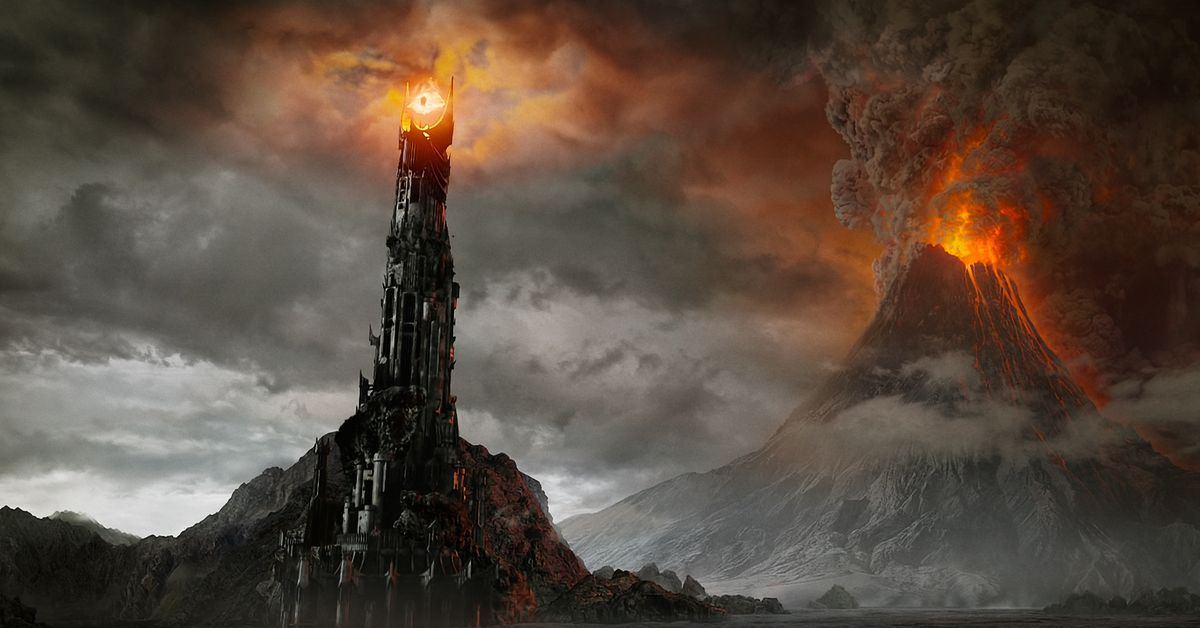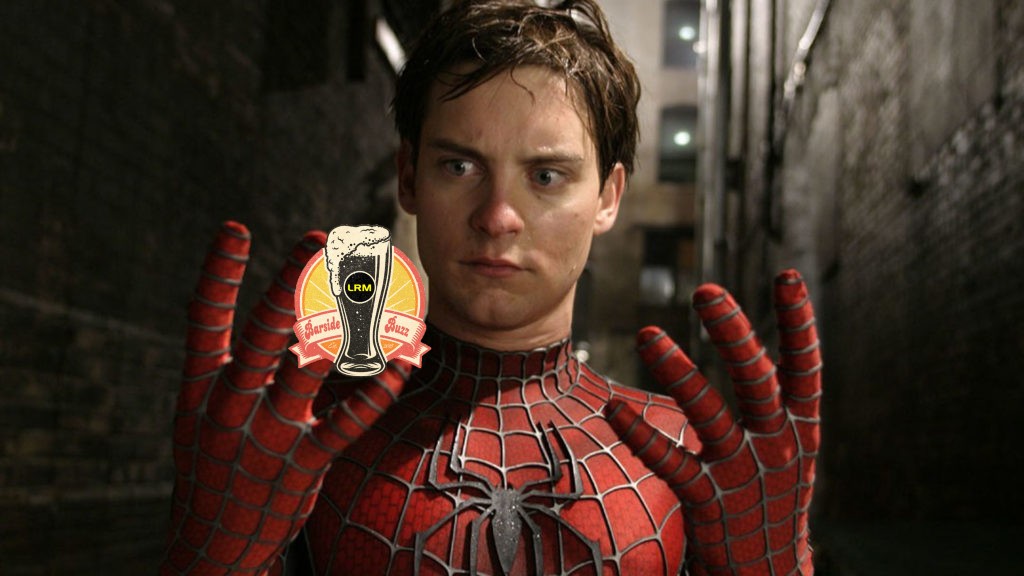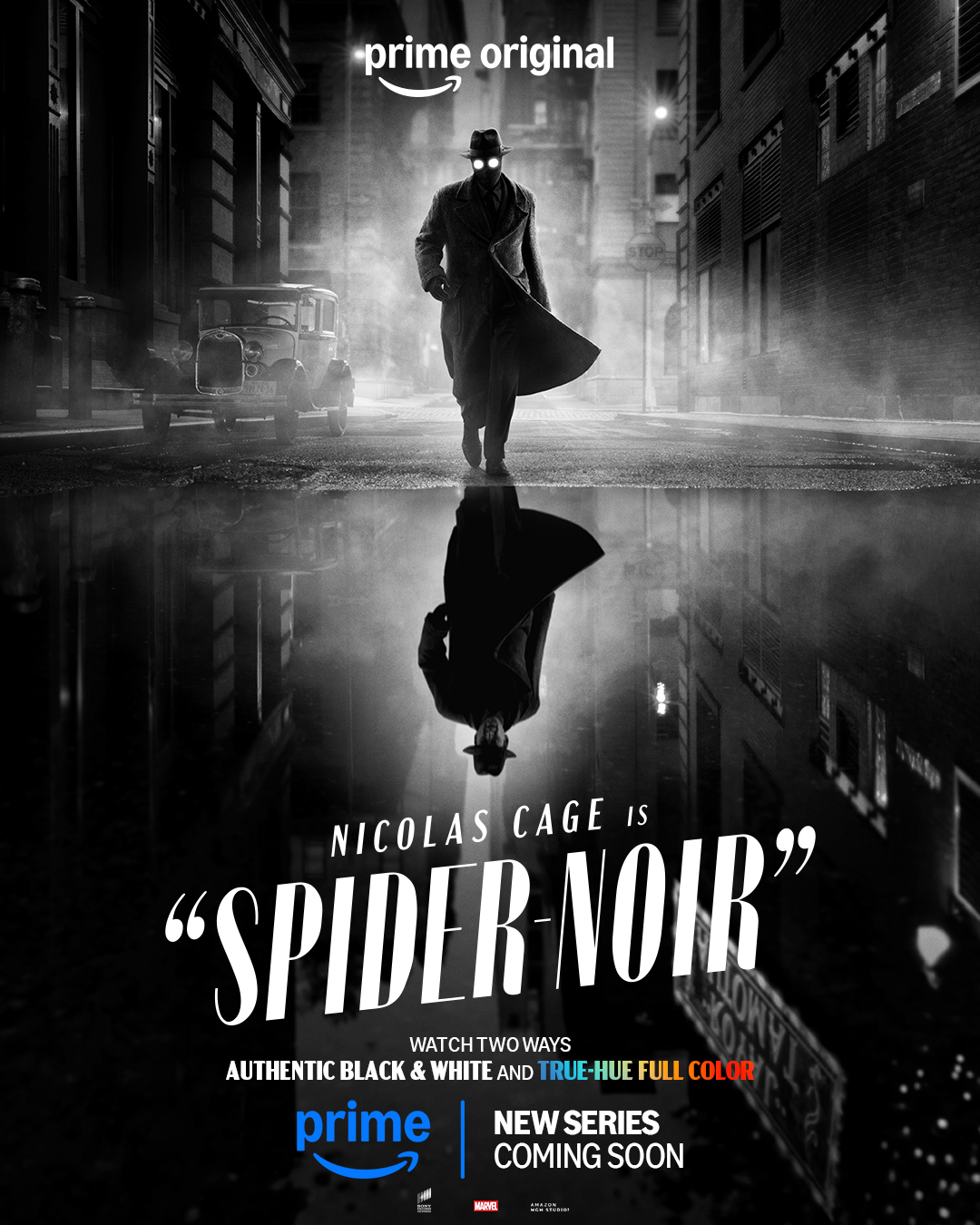It’s years in the making.
It’s been more than two decades since James Cameron acquired the film right to Yukito Kishiro’s Battle Angel Alita. Cameron had been busy with Avatar movies and Titanic to take up this venture.
Cameron recruited his friend, Robert Rodriguez, to finally bring this manga to life on the big screen. And the wait is well worth it.
Alita: Battle Angel stars Rosa Salazar, Christoph Waltz, Jennifer Connelly, Mahershala Ali, Ed Skrein and Jackie Earle Haley in this long-awaited manga-to-screen epic film.
The film follows a deactivated female cyborg who is revived and tried to piece her past life and future life together on Earth.
LRM Online had a phone interview with director Robert Rodriguez earlier this month. We got into in-depth conversations about the film itself, the script, James Cameron’s vision and his own vision for the film.
Alita: Battle Angel is playing in theaters today.
Read our exclusive interview below.
LRM: How exciting that this journey of Alita: Battle Angel is finally coming to the big screen for you?
Robert Rodriguez: Oh, man. For Jim [Cameron], it’s been almost 20 years since he got the rights for it. [Laughs] For me, after I turned in the script, I started drawing out the motor ball sequence by making storyboards. That was at the end of 2015 and I barely saw the finished version of it a few weeks ago. [Laughs] It’s been a long journey. Longer than anyone movie I’ve done for sure by like three times. It’s been very gratifying. The whole time you knew you were doing something special. Something that could play around the world. Something that had universal themes as well as the spectacle. It kind of makes a great Jim Cameron movie is a mix of truth and spectacle. Spectacle is the reason you go to the movies, but it’s actually the human truth and the human story that you take home with you. This had so much of that. So much art, more than you would ever expect in a science fiction or a manga adaptation at all. I think it’ll really surprise audiences and fans will just eat it up.
LRM: Are you a under tremendous pressure to get this right? Especially, since there’s such a rabid manga fan base.
Robert Rodriguez: I mean we really wanted [accomplish it]. Then again, it is sort of a sub genre that’s never really nailed it. You get a chance to really do something that can set a really high bar for other ones to adapt, because it starts with picking the story that actually is more universal. It was so great about what [Yukito] Kishiro did. He didn’t write something that was Asian specific. It was already set in the melting pot world with lots of diversity. We were able to tap into this story that anybody could relate to. Even if they don’t know what a manga is, they know they could find it. Jim’s movies tend to play to all audiences all over the world and not be just a niche audience. For those who are rabid fans, they’re going to be so excited to see how faithful we are to the book, into the spirit of the book and to the character especially. A whole lot of details that are in the mango show up, but not at the sacrifice of making a universal story. I think it’s like the best of all worlds.
LRM: Basically you immediately address that this, this story is not Asian-centric, which some critics may actually may disagree. Could you address further?
Robert Rodriguez: It’s not like Ghost In The Shell or Akira, which is set in like Neo-Tokyo, for instance. They have purely Asian characters and has always been. [Alita] is not specifically an Asian character or world. It’s set in the future. She’s from Mars. Just like I don’t write all my movies that take place in Texas. You create stuff that is a universal story and that’s why Jim chose it. He found the universal themes could be translated into making something that’s more of a melting pot and that has more diversity than being said in just one culture. This was a great choice since it’s very contemporary and timely. At the same time, it’s a very timeless tale. That also helps make it play all around the world that everybody can feel like it’s like they could relate to it.
LRM: One of the things I do have to admire is that you actually inserted a lot of Latin influences by having a Latina playing the lead role and with the setting. Could you talk more about that?
Robert Rodriguez: That was just by accident. I was just casting the best actress and just happen to be Latino. It was open to all people. She floored me, Rosa [Salazar] was so amazing. I sent it to Jim and I said, “I don’t want to jump the gun. We still have a lot of people to look at, but if we have to fill in the movie tomorrow–I’ll choose this girl.” [Laughs] He looked at that. He said, “I don’t see why we should keep looking. She’s like–perfect.” We kept looking anyway, but he thought she was just fantastic as well.
It is actually a funny reason, originally that does manga took place more like in Kansas City, but Jim is the one who had chosen years and years ago to set it in South America. It was for purely scientific reasons, because a space elevator would only work near an equator. He figured it would be scientifically near Panama City, which I thought was fantastic. It gave us a lot more color, an age and more of a Latin cultural look that you never seen in this, in a sci-fi film before. It adds to the melting pot feeling all the different cultures live there, because it’s one of the last cities left in the world. You have multiple languages. There is a Latin influence, but you see also you know Asians and all kinds of different countries are living as they’re represented. That’s why it’s so diverse, because that’s how it was in the manga.
LRM: What was it like working on a big budget film like this rather than the other mid budget films that you’ve done previously? Did you have restrictions?
Robert Rodriguez: It’s really been fun about this is the lack of restrictions. It’s usually why I never took on a big budget movie. I really loved creative freedom I have on my smaller movies, lower-to-mid budgets, because I can do my magic to make it feel like a much bigger budget movie than it is. I get to have all the freedom to do whatever I want with it. I kind of stayed away from big budget movies cause usually a studio owns and controls those. They’ll be telling you how to work, to direct, to end it or to cast it. They want their money back. I didn’t ever want to sacrifice the freedom I was so used to.
With this project, it is working with my friend Jim. I’ve known him 25 years and we both loved the material. We both agreed on what it is. He has so much power that I was really just making the movie for him. I never felt that pressure of a big budget movie. It’s still felt like we were making a go-kart together like a fun independent film. It felt very loose like that and very inspiring like that. I felt as independent as in my regular movies, if not more. It was a great way to get ushered into this big budget film making was by making it with The Terminator himself. [Laughs]
LRM: Now you wanted to make this film to feel like a James Cameron film. What are the hallmarks of his style that you try to mimic?
Robert Rodriguez: I’ve just known him for so long. I hadn’t really thought about it until we had a conversation. I knew, instinctively, I shouldn’t just do what I normally do. His script was so clearly written for him to direct and I could see it so clearly. I really wanted to make it feel more like the lost Jim Cameron movie than to go off my process. I didn’t really know what my process even meant until he told me something about science fiction and fantasy genres in general and the way he sees. That blew me away. I really couldn’t get it out of my head. I tend to be very whimsical with my stuff. I started as a cartoonist. He started as an illustrator. That’s different. That’s more realistic.
Cartoony is more whimsical and kind of fun like Spy Kids, El Mariachi or Desperado. A guy can fire a missile from a guitar case. I don’t think the audience really needs to know how it works. I think they can just buy into the dream logic of it. That wouldn’t fly with Jim. He’s much more grounded in real. He would ask, “How does that work? I don’t understand the engineering that it really wouldn’t work that way without blowing up in the guy’s face. I don’t buy it. Pulls me out of the movie.” I asked him how he would approach a movie like this. He said science fiction and fantasy, especially for him, has to be really grounded. Otherwise, you don’t buy the fantasy. If it’s not utterly believable, you don’t believe it. So I thought, “Wow, that’s cool!”
I really shouldn’t shoot it like I do my normal movies. I don’t want to shoot a green screen like Sin City or to have this artificial reality to it. If I tried to make it look like a living mango or anything stylized, so I threw all of that out the window. I decided to shoot real locations, build real sets, a lot of sets, have real actors around her and had her really bite an orange so that it has to feel real and grounded a lot more than I normally would do. That’s really what helped it feel much more like it falls in the line of science fiction films he would do where it’s just feels more grounded and believable. I think that’s why people fall in love with the character more, because they believe she’s actually real. That’s the genius of Jim. I wouldn’t have figured that out on my own.
LRM: [Laughs] Did she really bit into the orange? That’s surprising.
Robert Rodriguez: Yeah, she really bit into the orange. Then they have to replace her with CG and matched all of that. That’s why she looks so much more real. If you did Avatar and it’s on Pandora. They don’t have to look completely real, because nobody knows what Pandora looks like. We all know what an orange looks like. We all know what the table looks like. She’s got to look as real as that sitting at that table. A lot more work for the effects guys, but it made it look a lot more real.
LRM: How much involvement did James Cameron have in this movie without being like a backseat director?
Robert Rodriguez: He and I just got along for so long and we’ve always wanted to work together. He really trusted me to take it after I fixed the script for him. He had a long script that he wrote, but he never could crack it. When I fixed it for him, it showed that I understood the material. He really trusted me to go make it. Even more, he said, “Go make it your own.” I kept saying, “No, I want to make it more like a movie you would do.” [Laughs] We’re very respectful of each other. He wanted me to make assurances for him to not have the worry and then he would have to be babysitting, because he was trying to finish this colossal Avatar movies. I really took the reigns, but at anytime write him an e-mail. He would send back a long thoughtful answer, masterclass in film making, and be helpful throughout the whole editing process.
He did all the writing and all of the set up. He came back on it for some of the shoots just to observe whenever I asked him to just come to have some fun and check it out. He also be giving feedback on the cut. He just loved it. He’s just so in love with the movie. He is so happy. He thinks it’s the best collaboration he’s ever had with the filmmaker. We just got along so well. He was just always available when needed and then disappear when he had to go work on Avatars. He felt like it was in good hands.
LRM: Speaking of the story, I actually bought the volumes of the manga to binge read before watching the movie itself. [Laughs] Which was a lot! You incorporated a lot of different storylines into this two-hour plus movie. How did you decide what to use?
Robert Rodriguez: A lot of that was Jim already kind of cracked the code on that back in 2005 when he had written it. He had decided to take it book one, book two and a little bit of three and four with some motorball. Mainly, he’s really good about setting up a character. I’m glad he took a crack at it. I remembered when I did Sin City–I just got all my favorite stories and they try to shove them into one movie. [Laughs] I wanted to have my cake and eat it too. He’s a much more discipline to say, “Look. What’s the best story for this character to really set her up?” That’s why she never even goes to Zalem.
It’s really just sets her up in a way that now you can follow her. If there’s other movies you want to follow her through these other stories and other worlds. You need to start with really giving her a real arc. Someone who wakes up in the scrap yard didn’t know who she is. Thinks she’s insignificant. She finds out has power and knows how to use that power to where she can actually go and change the world. That’s like a really universal story. It’s a good character arc to kind of build the first movie off of. He did a lot of the heavy lifting on that.
LRM: Are there scripts sort of written for the next two movies or just notes for now?
Robert Rodriguez: A lot of notes. There’s a lot of books to work from. If people really love this movie, we already have great ideas on where we can take it. That would be hooking them for possibly a third. [Laughs] I’m hoping just get the word out. People need to come see it on the biggest screen possible. They will be blown away. It’s fun, fun movie. We would love to make more. It could be the start of a franchise.
LRM: Excellent. Hey, thank you very much, Robert. I really appreciate it. Thank you for speaking to me again.
Robert Rodriguez: Sure, absolutely. I’m glad you got to read the manga and got to see the flick. [Laughs]
Source: LRM Online Exclusive
 FOR FANBOYS, BY FANBOYS
Have you checked out LRM Online’s official podcasts and videos on The Genreverse Podcast Network? Available on YouTube and all your favorite podcast apps, This multimedia empire includes The Daily CoG, Breaking Geek Radio: The Podcast, GeekScholars Movie News, Anime-Versal Review Podcast, and our Star Wars dedicated podcast The Cantina. Check it out by listening on all your favorite podcast apps, or watching on YouTube!
Subscribe on: Apple Podcasts | Spotify | SoundCloud | Stitcher | Google Play
FOR FANBOYS, BY FANBOYS
Have you checked out LRM Online’s official podcasts and videos on The Genreverse Podcast Network? Available on YouTube and all your favorite podcast apps, This multimedia empire includes The Daily CoG, Breaking Geek Radio: The Podcast, GeekScholars Movie News, Anime-Versal Review Podcast, and our Star Wars dedicated podcast The Cantina. Check it out by listening on all your favorite podcast apps, or watching on YouTube!
Subscribe on: Apple Podcasts | Spotify | SoundCloud | Stitcher | Google Play



